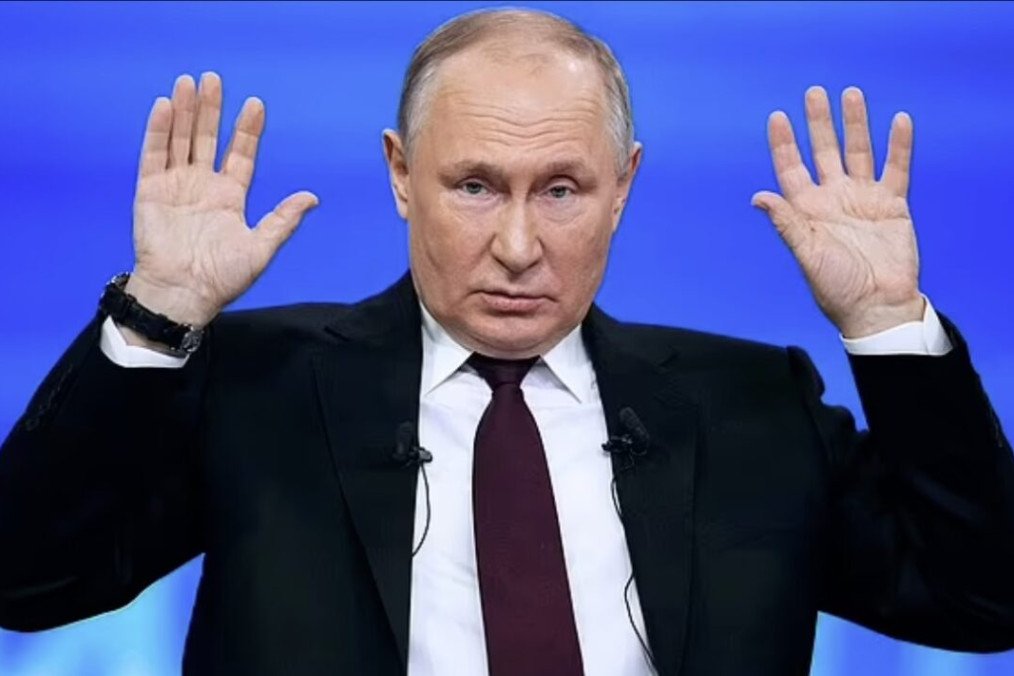- Category
- War in Ukraine
Russia’s Record Budget Revenues Mask Economic Struggles: Sanctions, Debt, and a Looming Financial Crisis

Russia managed to collect record revenues despite sanctions, but behind the impressive statistics lies a less favorable reality for the Russian Federation.
According to data published by Russia's Ministry of Finance on Monday, Bloomberg reported that the country's total budget revenues in December reached over 4 trillion rubles ($40 billion), a 28% increase compared to the same month last year. This is the highest level recorded since January 2011.
What’s wrong with Russia’s record budget revenues?
While Russia indeed collected a record 4 trillion rubles ($40 billion) in December, half of that amount—2.04 trillion rubles ($20 billion)—was raised by issuing Federal Loan Bonds (OFZ).
This marked a record bond issuance for the Russian Ministry of Finance, effectively amounting to money creation. Simply put, half of Russia's December 2024 budget revenue was "printed."
How? In 2024, Russia held numerous auctions for the sale of debt securities, but there were no buyers. In the end, the securities were purchased by state-owned banks controlled by the government, which the banks then pledged to the Central Bank of the Russian Federation in exchange for cash.
What about other sources of Russia’s budget revenue?
Russia did achieve certain successes. Oil and gas revenues totaled 11.1 trillion rubles ($111 billion), a 26% increase compared to the previous year. Similarly, non-oil and gas revenues rose by 26% to 25.6 trillion rubles ($256 billion).
However, much of this revenue increase was due to the devaluation of the ruble against other currencies and inflation. For the first time, the ruble's annual average value exceeded 100 rubles per dollar (an 11% devaluation). Inflation also contributed to higher tax collection.
The problem for Russia is that even this revenue growth does not cover its wartime expenditures. Russia ended the year with a record budget deficit of 3.5 trillion rubles ($35 billion). This deficit has been growing annually, reaching 3.3 trillion rubles in 2023 and 3.2 trillion rubles in 2022.
How Is Russia covering its budget deficit?
In 2008, Russia established the "National Wealth Fund" to accumulate reserves for a "rainy day." The fund was financed by windfall revenues from oil sales. Despite high oil prices in recent years, Russia has depleted its reserves to 2008 levels.
As of early January, the liquid portion of the fund stood at just $37.5 billion, down from $110 billion before Russia’s full-scale invasion of Ukraine. If the budget deficit remains at previous levels, Russia could fully exhaust this fund by 2025.
Can Russia continue the war if oil prices drop?
Partially. Russia plans to collect a record 41.4 trillion rubles ($411 billion) in 2025, with over $140 billion allocated for the war. Many experts call these plans "unrealistic" while the Russian economy continues to show signs of stagnation.
Previously, oil and gas revenues accounted for 30% of Russia's budget. However, Ukraine did not renew its gas transit contract on January 1, and the US imposed sanctions on Russia’s shadow fleet, which handled the majority of its oil and gas exports. February will reveal whether Russia has found effective ways to bypass sanctions and how impactful the measures have been.
Currently, Russia’s finances do not appear stable, and its reserves are significantly depleted. 2025 could become the most challenging year for Russia’s public finances.
The Kremlin is left with several unpopular tools to sustain the war effort, such as inflation, devaluation, tax increases, and spending cuts. However, sanctions pressure significantly reduces Russia’s military capabilities.
-206008aed5f329e86c52788e3e423f23.jpg)
-35249c104385ca158fb62273fbd31476.jpg)


-554f0711f15a880af68b2550a739eee4.jpg)


